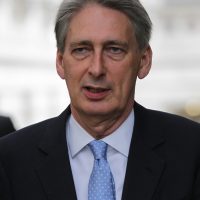
The OBR estimated that the UK economy grew 1.7% over 2017, against the 1.5% forecast in the Autumn Budget in November last year.
Between 2018 and 2019, GDP is forecast to rise to 1.5%, up from 1.4% in the previous budget.
Growth in the 2019/20 period remains unchanged at 1.3%, which is expected to rise to 1.5% for the 2021/22 period.
“The economy has slightly more momentum in the near term, thanks to the unexpected strength of the world economy, but there seems little reason to change our view of its medium-term growth potential,” said the OBR.
Inflation
Inflation is expected to fall back to around the 2% target over the next 12 months, and the OBR expects the figure to remain close to that level.
Consumer price index (CPI) inflation reached 3.1% in November 2017, but is forecast to fall as the effects of sterling’s depreciation on import prices winds down.
Market figures
Meanwhile, the OBR expects budget deficit to come in at £45.2bn in 2018 – £4.7bn less than estimated in November.
Borrowing is forecast to be 1.8% of GDP in 2018-19, 1.6% in 2019-20, 1.3% in 2020-21, 1.1% in 2021-22, and 0.9% in 2022-23.
Employment growth is expected to slow over the next five years, reflecting the view that it is currently just below its sustainable rate and the pressure of an ageing population.
Hammond said in his speech that he expects 500,000 more people to be employed by 2022.
And while the OBR expects wage growth to pick up in the short term, it will be a “subdued” affair.
Real earnings growth over next five years is predicted to average 0.7 per year, with growth in real household disposable income person to average 0.4% a year.
Brexit
Using information from the joint UK-EU report released in December 2017, the OBR has estimated that Brexit will cost at least £37.1bn into 2022 and beyond.
The treasury had previously estimated Brexit would cost £35-39bn to public finances.
The OBR said that Brexit has had a smaller impact than feared, partly owing to consumers willing to maintain spending at the cost of their savings.
However, the full cost could be higher, as the OBR said that in the absence of precise outcomes from the Brexit negotiations, the forecast continue to use broad-brush assumptions on costs.
For instance, the prime minister has said that the UK may continue to make contributions to certain European programmes that it wishes to remain a part of – the costs of which cannot be estimated yet.
More so, the OBR also noted that the effects of Brexit on public finances are likely to be dominated by the indirect effects of changes in trade, migration and other economic factors.














